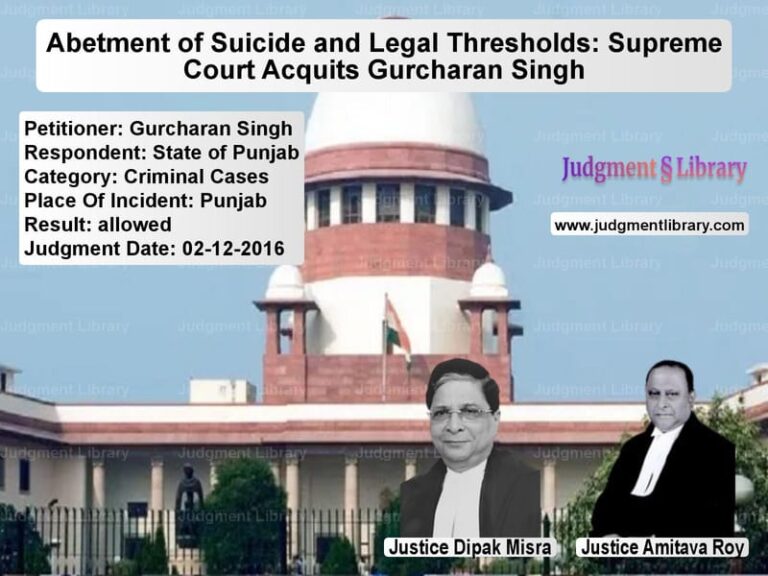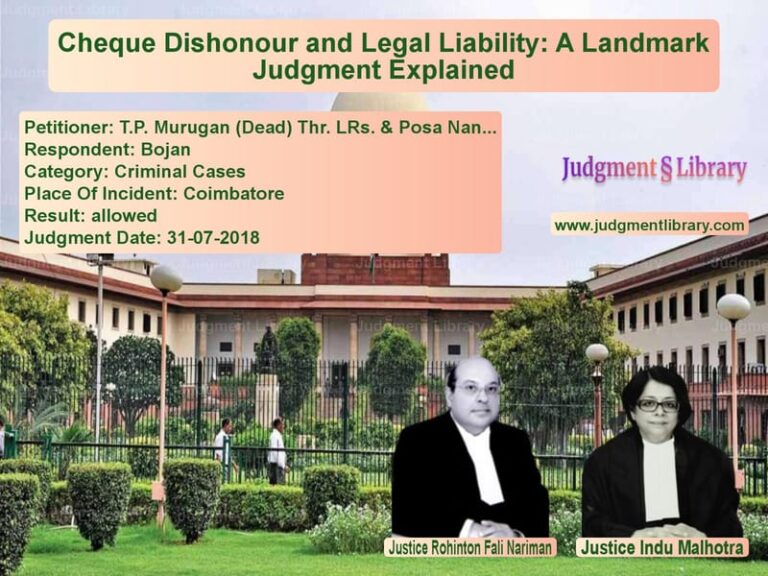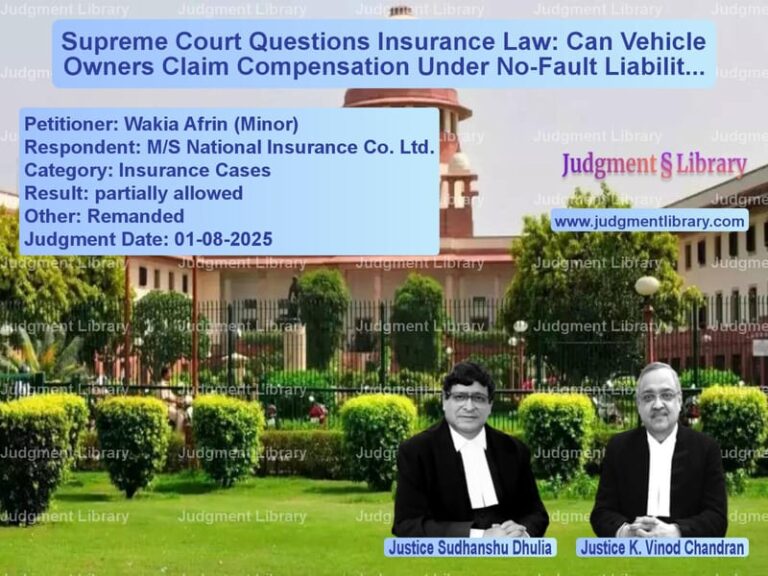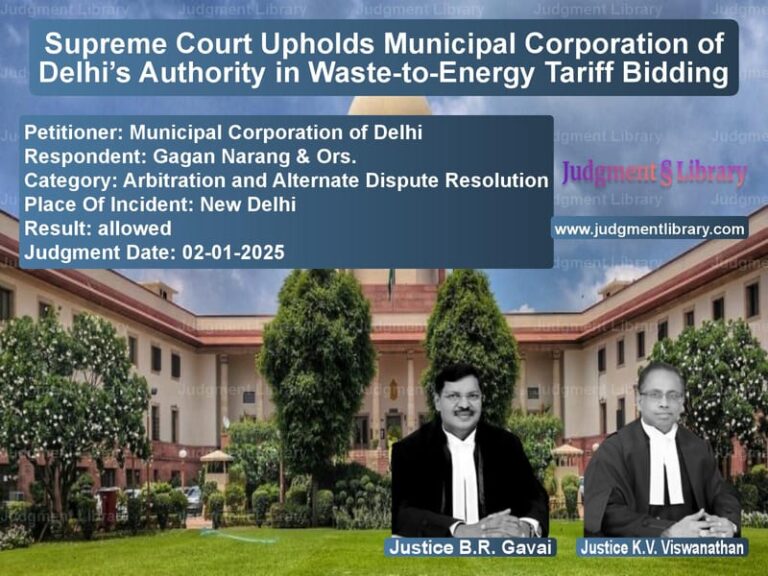Supreme Court Rules on Mandatory Sharing of Sports Broadcast Signals
The Supreme Court of India, in the case of Union of India vs. Board of Control for Cricket in India & Ors., delivered a crucial judgment concerning the mandatory sharing of sports broadcasting signals. The ruling upheld the Delhi High Court’s decision that sports broadcasters are only required to share live sports feeds with Prasar Bharati for retransmission on its terrestrial and Direct-to-Home (DTH) networks, but not for further distribution through private cable operators.
Background of the Case
The Board of Control for Cricket in India (BCCI), the official governing body for cricket in India, had granted exclusive media rights to Star India Private Limited for broadcasting cricket matches between 2012 and 2018. Under the Sports Broadcasting Signals (Mandatory Sharing with Prasar Bharati) Act, 2007 (referred to as the ‘Sports Act, 2007’), Star India and ESPN Software India Pvt. Ltd. were required to share live feeds of nationally important sports events with Prasar Bharati.
However, the dispute arose over whether these shared signals could be further retransmitted by Prasar Bharati to private cable operators, effectively making the content available to millions of cable subscribers without requiring them to subscribe to private sports channels.
Key Legal Issues Considered
- Whether Prasar Bharati can retransmit shared sports signals beyond its terrestrial and DTH networks.
- Whether mandatory sharing provisions under the Sports Act, 2007 extend to private cable operators.
- Whether Section 3 of the Sports Act, 2007, when read with Section 8 of the Cable Television Networks (Regulation) Act, 1995, allows for wider distribution.
- Whether restricting retransmission to Prasar Bharati’s own networks violates constitutional provisions.
Petitioner’s (Union of India & Prasar Bharati) Arguments
The government argued:
- The primary purpose of the Sports Act, 2007 was to ensure the widest possible reach of sporting events of national importance.
- Section 8 of the Cable Act, 1995 mandates that cable operators must carry all Doordarshan channels, which include live sports events shared with Prasar Bharati.
- The mandatory sharing provisions ensure access to sports for those who cannot afford private broadcasters.
Respondent’s (BCCI, Star India & ESPN) Arguments
The respondents contended:
- Mandatory sharing should be strictly limited to Prasar Bharati’s own terrestrial and DTH networks.
- Extending the retransmission to cable operators would amount to unauthorized distribution, harming commercial broadcasting rights.
- The licensing agreements between BCCI and Star India involve significant investments, and wider retransmission would undercut their revenues.
- The government’s interpretation of the law would diminish the exclusivity of media rights agreements.
Supreme Court’s Analysis and Judgment
The Supreme Court, comprising Justices Ranjan Gogoi and Navin Sinha, upheld the High Court’s ruling and ruled in favor of the broadcasters.
1. Scope of Mandatory Sharing Under Section 3 of the Sports Act
The Court clarified that the mandatory sharing obligation applied only to retransmission on Prasar Bharati’s terrestrial and DTH networks:
“The obligation to share live broadcasting signals is intended only for retransmission on Prasar Bharati’s networks and does not extend to private cable operators.”
2. Protection of Exclusive Media Rights
The Court acknowledged the commercial interests of private broadcasters:
“The purpose of the Sports Act, 2007 was not to undermine commercial broadcasting agreements but to ensure accessibility for the public through Doordarshan’s free-to-air services.”
3. Cable Operators Cannot Exploit Shared Signals
The Court ruled that cable operators cannot legally retransmit Doordarshan’s shared live feeds, stating:
“Cable operators must obtain rights directly from the content rights holder. They cannot exploit mandatory sharing provisions under the Sports Act, 2007 to circumvent licensing agreements.”
4. Distinction Between Public Interest and Commercial Interests
The Court emphasized balancing public interest with commercial viability:
“The legislature has ensured free-to-air access through Doordarshan’s networks, but it does not extend a blanket free distribution mechanism for all cable operators.”
Final Orders
- The Supreme Court upheld the Delhi High Court’s judgment, restricting retransmission of shared sports signals to Prasar Bharati’s terrestrial and DTH networks.
- Private cable operators are prohibited from carrying these feeds without separate licensing agreements.
- The judgment reinforced the protection of exclusive sports broadcasting rights.
Legal Implications
1. Strengthening Copyright Protection
The ruling ensures that exclusive media rights granted to private broadcasters are protected from unauthorized distribution.
2. Clarifying the Scope of the Sports Act, 2007
The decision narrows the interpretation of mandatory sharing provisions, preventing misuse by private networks.
3. Impact on Sports Viewership
While ensuring wider access through Doordarshan, the ruling reinforces the need for licensing agreements for broader distribution.
Conclusion
The Supreme Court’s ruling in Union of India vs. BCCI & Ors. provides a crucial interpretation of broadcasting rights in India. By balancing public access and commercial rights, the Court has upheld fair competition in sports broadcasting.
Don’t miss out on the full details! Download the complete judgment in PDF format below and gain valuable insights instantly!
Download Judgment: Union of India vs Board of Control for Supreme Court of India Judgment Dated 22-08-2017.pdf
Direct Downlaod Judgment: Direct downlaod this Judgment
See all petitions in Legislative Powers
See all petitions in Fundamental Rights
See all petitions in Public Interest Litigation
See all petitions in Judgment by Ranjan Gogoi
See all petitions in Judgment by Navin Sinha
See all petitions in dismissed
See all petitions in Declared Infructuous
See all petitions in supreme court of India judgments August 2017
See all petitions in 2017 judgments
See all posts in Constitutional Cases Category
See all allowed petitions in Constitutional Cases Category
See all Dismissed petitions in Constitutional Cases Category
See all partially allowed petitions in Constitutional Cases Category







